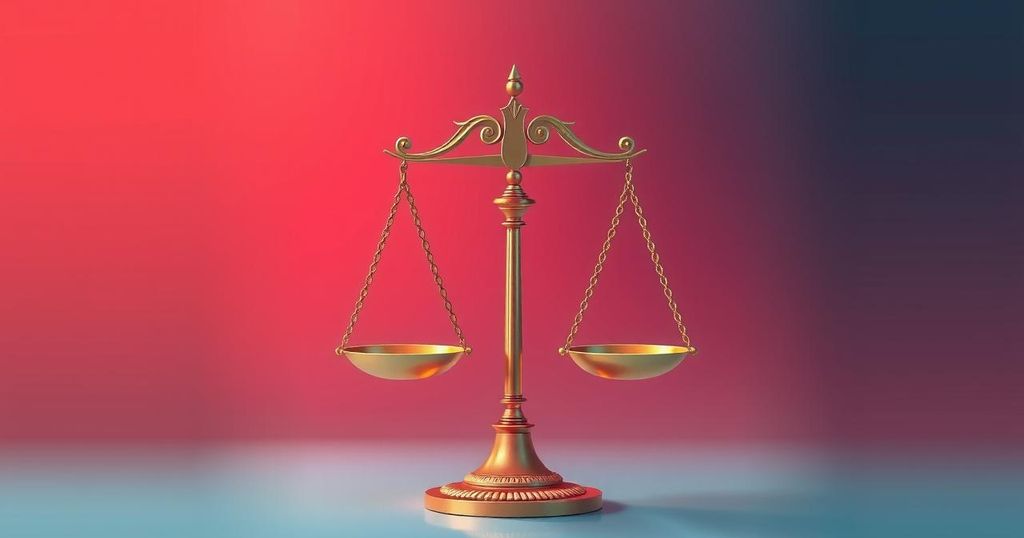Sudan has commenced legal proceedings against the UAE at the ICJ, accusing it of aiding genocide against the Masalit community through support for the RSF militia. Sudan seeks protective measures to uphold its obligations under the Genocide Convention, while the UAE contends the accusations are unfounded. Reports highlight ongoing acts of violence, including widespread sexual assault, amidst the prevailing conflict in Sudan.
On Thursday, the International Court of Justice (ICJ) confirmed that Sudan has initiated proceedings against the United Arab Emirates (UAE). The allegations include the UAE’s alleged complicity in genocide against the Masalit community, a black African group in West Darfur. Sudan accuses the Rapid Support Forces (RSF) and their allied militia of various atrocities facilitated by the UAE through significant “financial, political and military” support.
Sudan seeks the ICJ to enforce provisional measures against the UAE, urging it to uphold its commitments under the Genocide Convention. This includes taking necessary actions to prevent harm against the Masalit, safeguarding their rights and well-being, as well as ensuring against actions that could lead to their destruction or hinder their ability to reproduce.
In rebuttal, the UAE aims to dismiss the case, describing it as “baseless.” A representative implied that the claims are intended to distract from the Sudanese Armed Forces’ complicity in ongoing atrocities. An unnamed Emirati official criticized the application as a “cynical publicity stunt” to deflect attention from the Sudanese Armed Forces’ responsibilities regarding the crisis.
A report by the Raoul Wallenberg Centre for Human Rights, published in April 2024, called for attention on the ongoing genocide in Darfur. The report asserts that the RSF, along with allied militias, are implicated in genocide against the Masalit and other non-Arab groups, highlighting that nations including Sudan, Libya, Chad, the Central African Republic, and Russia’s Wagner Group are also complicit.
The report emphasizes that all signatories to the Genocide Convention carry a legal obligation to prevent genocide. It notes that the conflict began in 2003 when the Sudan Liberation Movement (SLM) and Justice and Equality Movement (JEM) rose against the government for perceived oppression of non-Arab groups, leading to intense violence and retaliation by government forces and allied militias.
Victims of the conflict have suffered greatly. Historical accounts detail how the Sudanese army and the Janjaweed militias conspired to conduct massacres, leading to 400,000 deaths and displacing millions. The United States classified these actions as genocide, prompting the International Criminal Court to issue an arrest warrant for then-President Omar al-Bashir in 2009 for orchestrating mass killings.
The RSF reportedly continues using sexual violence as a tactic in the war, with many women facing horrific assaults, some being pushed to contemplate suicide as an escape. UNICEF reported over 220 cases of child rape in Sudan since early 2024, with the youngest survivor being merely one year old.
In summary, Sudan’s claim against the UAE at the ICJ highlights serious allegations of complicity in genocide against the Masalit community by the RSF, with significant financial and military backing from the UAE. The situation in Sudan underscores the enduring impacts of violence that have proliferated since the Darfur crisis began in 2003. Both international law and human rights advocates emphasize the urgency of addressing and preventing ongoing atrocities in the region.
Original Source: www.moroccoworldnews.com




